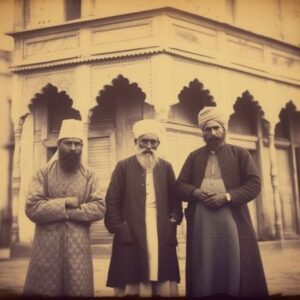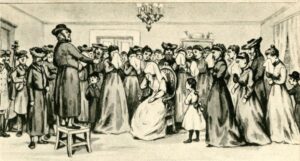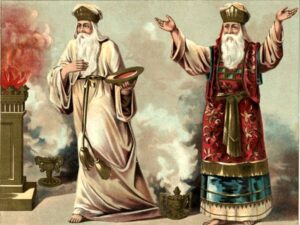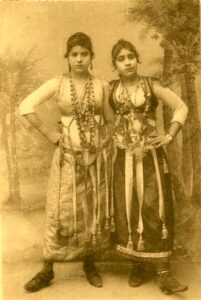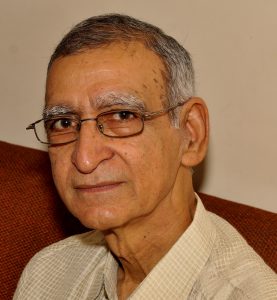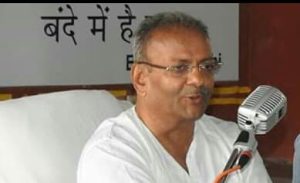
રમેશ ઓઝા
કેન્દ્ર સરકારે ભારતમાં હરિયાળી ક્રાંતિના જનકોમાંના એક ડૉ. એમ.એસ. સ્વામીનાથન્ને ભારતરત્નનો ઈલ્કાબ આપ્યો એ જરાક નવાઈ પમાડે એવી ઘટના છે. નવાઈ પમાડે એવી ઘટના એટલા માટે છે કે તેમણે હજુ દાયકા પહેલા સરકારને ભલામણ કરી હતી કે ભારતના ખેડૂતોને તેના ઉત્પાદનની પડતર કિંમત ઉપર ૫૦ ટકા ટેકાનો ભાવ આપવો જોઈએ. આ બાજુ સરકાર અને ખેડૂતો વચ્ચે ગજગ્રાહ ચાલી રહ્યો છે અને ગોદી મીડિયાની મદદથી ખેડૂતોને સ્વાર્થી, બેજવાબદાર, દેશદ્રોહી વગેરે રીતે ઓળખાવવામાં આવી રહ્યા છે. ગોદી મીડિયા કોના ઇશારે કોઈકની પ્રસંશા કરે છે અને કોઈકની બદનામી કરે છે એ હવે કોઇથી અજાણ્યું નથી. અત્યારે દિલ્હીમાં ખેડૂતો એ જ માગણી લઈને આંદોલન કરી રહ્યા છે જેની ભલામણ એમ.એસ. સ્વામીનાથને કરી હતી, પણ સરકાર તેમની સાથે એવું વલણ અપનાવી રહી છે જેવું ૨૦૨૧ની સાલમાં આપનાવવામાં આવ્યું હતું. કદાચ એનાથી પણ બદતર.
નવાઈ પમાડે એવી ઘટના એટલા માટે પણ છે કે ચૂંટણી જીતવા માટે જ્યારે ભારતરત્નની લ્હાણી કરવામાં આવી રહી છે ત્યારે એમ.એસ. સ્વામીનાથન્ની કદર કરવામાં આવી છે. એમ.એસ. સ્વામીનાથન્ને ભારતરત્ન આપવાથી ખેડૂતો રાજી થઈ જશે અને બી.જે.પી.ને મત આપશે એવી શક્યતા નહીંવત છે. સ્વામીનાથન્ ચૌધરી ચરણસિંહની જેમ ખેડૂતોમાં લોકપ્રિય ખેડૂત નેતા નહોતા. તેમણે જે કામ કર્યું છે કે મૂંગું પણ મહત્ત્વનું કામ કર્યું છે.
નવાઈ પમાડે એવી ઘટના એટલા માટે પણ છે કે એમ.એસ. સ્વામીનાથન્ની કદર દ્વારા કાઁગ્રેસ શાસનની પણ ભેગીભેગી કદર થવાની છે. ભારત બે દાયકામાં અન્નની બાબતમાં આત્મનિર્ભર બની ગયું હતું અને તેનો યશ કાઁગ્રેસના શાસકોને પણ જાય છે. એમ.એસ. સ્વામીનાથને ભારત સરકાર માટે અને ભારત સરકાર દ્વારા હરિયાળી ક્રાંતિ કરી હતી. હરિયાળી ક્રાંતિનો ઉપક્રમ ભારત સરકારનો હતો અને અન્ન સ્વાવલંબનની બાબતમાં ભારત સરકાર પ્રતિબદ્ધ હતી. એ સમયે જનસંઘ અને રાષ્ટ્રીય સ્વયંસેવક સંઘની પ્રાથમિકતા ગોરક્ષણની હતી. ૧૯૬૭ની સાલમાં તેમણે સંસદભવનને ઘેરો ઘાલ્યો હતો એ ઘટના યાદ હશે.
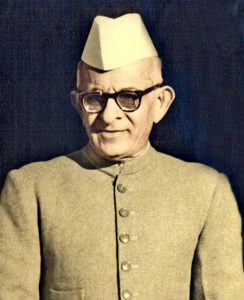 ભારત આઝાદ થયું એ પછીનાં તરતનાં વર્ષોમાં એમ કહેવામાં આવતું હતું કે કેન્દ્રના કૃષિ અને અન્ન પુરવઠા ખાતાના પ્રધાન બનવું એટલે પોતાની રાજકીય કારકિર્દીની ઘોર ખોદવી. કોઈ પ્રધાન બનવા રાજી નહોતા થતા, ત્યારે કનૈયાલાલ મુનશીએ એ જવાબદારી સ્વીકારી હતી અને ત્યારે તેમણે સંકલ્પ કર્યો હતો કે દેશ ૧૯૫૨ના અંત સુધીમાં અન્નની બાબતમાં આત્મનિર્ભર બનશે. ફ્રીડમ ફ્રોમ ધ ફોરેન બ્રેડ એ રાજકીય આઝાદી કરતાં જરા ય ઓછું મહત્ત્વ નથી ધરાવતું એમ મુનશીએ ત્યારે કહ્યું હતું. તેમણે કૃષિ સંશોધન માટે સંસ્થા સ્થાપી. તેમણે વિદેશમાં જઇને કૃષિ અધ્યયન કરવા માટે સ્કોલરશીપ આપી. એમ.એસ. સ્વામીનાથન્ને પણ સ્કોલરશીપ મળી હતી. તેમણે અને તેમના અનુગામી કૃષિ પ્રધાનોએ દેશભરમાં જમીનની ઉત્પાદકતા અને તે કઈ ચીનના કૃષિ ઉત્પાદન માટે લાયક છે એનું સર્વેક્ષણ શરૂ કરાવ્યું હતું. જ્યાં ખેતી કરવામાં આવતી નહોતી એવી ખરાબ જમીનને કઈ રીતે ઉત્પાદક બનાવી શકાય એના ઉપાય શોધવાના પ્રયાસ આદર્યા હતા. રેશનીંગ અને ખુલ્લા માર્કેટની બાબતે તેમણે (મુનશીએ) ખુલ્લી નીતિ અપનાવી હતી અને ખેડૂતો સહિત દરેક પાસેથી સૂચનો માગવામાં આવતા હતા અને એ મુજબ નીતિમાં ફેરફાર કરવામાં આવતો હતો. વધારે કૃષિ ઉપજ માટે બિયારણમાં સંકર સહિતના પ્રયોગો શરૂ કરવામાં આવ્યા હતા.
ભારત આઝાદ થયું એ પછીનાં તરતનાં વર્ષોમાં એમ કહેવામાં આવતું હતું કે કેન્દ્રના કૃષિ અને અન્ન પુરવઠા ખાતાના પ્રધાન બનવું એટલે પોતાની રાજકીય કારકિર્દીની ઘોર ખોદવી. કોઈ પ્રધાન બનવા રાજી નહોતા થતા, ત્યારે કનૈયાલાલ મુનશીએ એ જવાબદારી સ્વીકારી હતી અને ત્યારે તેમણે સંકલ્પ કર્યો હતો કે દેશ ૧૯૫૨ના અંત સુધીમાં અન્નની બાબતમાં આત્મનિર્ભર બનશે. ફ્રીડમ ફ્રોમ ધ ફોરેન બ્રેડ એ રાજકીય આઝાદી કરતાં જરા ય ઓછું મહત્ત્વ નથી ધરાવતું એમ મુનશીએ ત્યારે કહ્યું હતું. તેમણે કૃષિ સંશોધન માટે સંસ્થા સ્થાપી. તેમણે વિદેશમાં જઇને કૃષિ અધ્યયન કરવા માટે સ્કોલરશીપ આપી. એમ.એસ. સ્વામીનાથન્ને પણ સ્કોલરશીપ મળી હતી. તેમણે અને તેમના અનુગામી કૃષિ પ્રધાનોએ દેશભરમાં જમીનની ઉત્પાદકતા અને તે કઈ ચીનના કૃષિ ઉત્પાદન માટે લાયક છે એનું સર્વેક્ષણ શરૂ કરાવ્યું હતું. જ્યાં ખેતી કરવામાં આવતી નહોતી એવી ખરાબ જમીનને કઈ રીતે ઉત્પાદક બનાવી શકાય એના ઉપાય શોધવાના પ્રયાસ આદર્યા હતા. રેશનીંગ અને ખુલ્લા માર્કેટની બાબતે તેમણે (મુનશીએ) ખુલ્લી નીતિ અપનાવી હતી અને ખેડૂતો સહિત દરેક પાસેથી સૂચનો માગવામાં આવતા હતા અને એ મુજબ નીતિમાં ફેરફાર કરવામાં આવતો હતો. વધારે કૃષિ ઉપજ માટે બિયારણમાં સંકર સહિતના પ્રયોગો શરૂ કરવામાં આવ્યા હતા.
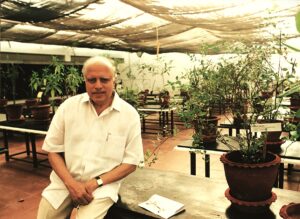 કનૈયાલાલ મુનશીએ સંકલ્પ કર્યો હતો એમ ૧૯૫૨ની સાલમાં તો ભારત અન્ન સ્વાવલંબી નહોતું થયું, પરંતુ તેમના અનુગામી પ્રધાનોએ એ સંકલ્પને પોતાનો ગણ્યો હતો, કારણ કે એ ભારત સરકારનો સંકલ્પ હતો, ભારતની પ્રજાનો સંકલ્પ હતો. આગળ જતા ફૂડ કોર્પોરેશન ઓફ ઇન્ડિયાની સ્થાપના કરવામાં આવી, ઠેક ઠેકાણે અન્નના પુરવઠા માટે ગોદામો બાંધવામાં આવ્યા હતા, અન્નની યાતાયાત માટે રેલવે સાથે અલાયદી વ્યવસ્થા કરવામાં આવી, ગામેગામ રેશનીંગની દુકાનો ખોલવા માટે પરવાનાઓ આપવામાં આવ્યા અને એ રીતે અન્નના જાહેર વિતરણ માટેની વ્યવસ્થા કરવામાં આવી. અને છેવટે ૧૯૬૭-૬૮ની સાલ સુધીમાં ભારત અન્ન સ્વાવલંબી બની ગયું. એનો શ્રેય ભારતનાં તમામ કૃષિ પ્રધાનો, વડા પ્રધાનો અને એમ.એસ. સ્વામીનાથન્ જેવા કૃષિ વિજ્ઞાનીઓને જાય છે.
કનૈયાલાલ મુનશીએ સંકલ્પ કર્યો હતો એમ ૧૯૫૨ની સાલમાં તો ભારત અન્ન સ્વાવલંબી નહોતું થયું, પરંતુ તેમના અનુગામી પ્રધાનોએ એ સંકલ્પને પોતાનો ગણ્યો હતો, કારણ કે એ ભારત સરકારનો સંકલ્પ હતો, ભારતની પ્રજાનો સંકલ્પ હતો. આગળ જતા ફૂડ કોર્પોરેશન ઓફ ઇન્ડિયાની સ્થાપના કરવામાં આવી, ઠેક ઠેકાણે અન્નના પુરવઠા માટે ગોદામો બાંધવામાં આવ્યા હતા, અન્નની યાતાયાત માટે રેલવે સાથે અલાયદી વ્યવસ્થા કરવામાં આવી, ગામેગામ રેશનીંગની દુકાનો ખોલવા માટે પરવાનાઓ આપવામાં આવ્યા અને એ રીતે અન્નના જાહેર વિતરણ માટેની વ્યવસ્થા કરવામાં આવી. અને છેવટે ૧૯૬૭-૬૮ની સાલ સુધીમાં ભારત અન્ન સ્વાવલંબી બની ગયું. એનો શ્રેય ભારતનાં તમામ કૃષિ પ્રધાનો, વડા પ્રધાનો અને એમ.એસ. સ્વામીનાથન્ જેવા કૃષિ વિજ્ઞાનીઓને જાય છે.
૧૯૪૩ના બંગાળનો ભૂખમરો (ફેમીન) જોઇને એમ.એસ. સ્વામીનાથને પોતાની જાત સાથે સંકલ્પ કર્યો હતો કે તેઓ કૃષિ વિજ્ઞાન માટે પોતાનું જીવન સમર્પિત કરશે અને એ પછી તેમણે ખેડૂત અને ખેતીવાડી સિવાય કોઈ અન્ય ચીજનો વિચાર નહોતો કર્યો. એ ભૂખમરા પછી કાઁગ્રેસે સંકલ્પ કર્યો હતો કે આઝાદ ભારતમાં ભૂખથી કોઈ માણસ નહીં મરે અને કોઈને મરવા પણ દીધો નહોતો. ફેમીન એ સંસ્થાનવાદી શોષણનું પરિણામ છે અને એટલે ભારતની પ્રજાને વારંવાર તેનો અનુભવ થતો રહ્યો છે અને તેનો ઈલાજ સ્વતંત્રતા છે એવી જે દલીલ કાઁગ્રેસના નેતાઓ કરતા હતા એ સિદ્ધ કરી આપી હતી.
૨૦૧૪ પહેલાં દેશનો કોઈ જ વિકાસ નહોતો થયો, કાઁગ્રેસીઓએ અને નેહરુ પરિવારે માત્ર સત્તા ભોગવી હતી અને જે વિકાસ થઈ રહ્યો છે એ હવે ૨૦૧૪ પછીથી થઈ રહ્યો છે એવી જે દલીલો કરવામાં આવે છે એ નરેન્દ્ર મોદીની સરકારે ભારતને અન્ન સ્વાવલંબી બનાવનારાઓમાંના એક એમ.એસ. સ્વામીનાથન્ને ભારતરત્નનો ઈલ્કાબ આપીને નિરસ્ત કરી નાખી છે. ઉપર કહ્યું એમ નવાઈ પમાડે એવી ઘટના આ કારણે છે.
પ્રગટ : ‘નો નૉનસેન્સ’, નામક લેખકની કટાર, ‘રવિવારીય પૂર્તિ’, “ગુજરાતમિત્ર”, 25 ફેબ્રુઆરી 2024
![]()


